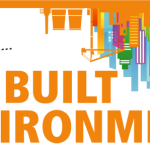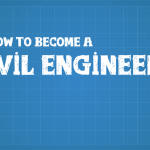Careers in construction or civil engineering vary from designing the built environment we see all around us to a job on a construction site.
Careers in construction or civil engineering vary from planning and designing the built environment we see all around us, like factories, hospitals, roads and bridges for example, to jobs on construction sites – with a million other roles in between! The construction industry may surprise you with the breadth and range of jobs it has on offer and there are quite a few you may never have heard of, like acoustics consultant, demolition operative or ceiling fixer, steeplejack, minerals surveyor or quarry engineer. If you want to leave your mark on the world around you, a career in construction is certainly an area well worth considering.
There are multiple routes into this sector at varying levels of education or level of qualification. At entry level, i.e. if you’re a school-leaver who’s not going on to study A-levels or go to university, you can undertake a traineeship and then consider an apprenticeship in whichever trade you are interested in – carpentry, bricklaying, plastering etc. During an apprenticeship you will gain qualifications such as a BTEC Level 2 Diploma, an NVQ Level 2 Diploma and then go on to attain a Higher Apprenticeship. You could then go on to complete an Advanced Apprenticeship and then continue on to take a full honours degree at university in subjects such as Construction Project Management, Civil Engineering or Engineering Management – it all depends on how far you want to go with your qualifications. If you work in the industry as a technician for a while, you could qualify as a civil engineer by studying part-time for a BTEC HNC/HND, foundation degree or degree in civil engineering.
To go into civil engineering you will need to do an honours degree, which means you will need at least five GCSEs, grades A-C, and two or three A levels including maths and a science subject or equivalent qualifications. Precise entry requirements will vary between individual colleges and universities – some may accept a relevant Access to Higher Education qualification
A three-year Bachelor of Engineering (BEng) degree would be the usual entry level requirement in order to start work as a graduate civil engineer. You can then go on to do an MSC in Civil Engineering if you want to go into the industry at a higher level. These qualifications are important if you want to work towards chartered engineer status and you could also study other engineering-related subjects but it might take you longer to qualify.
 Moving On magazine Careers and Qualifications for School Leavers
Moving On magazine Careers and Qualifications for School Leavers




 A New Sparta Group Company
A New Sparta Group Company